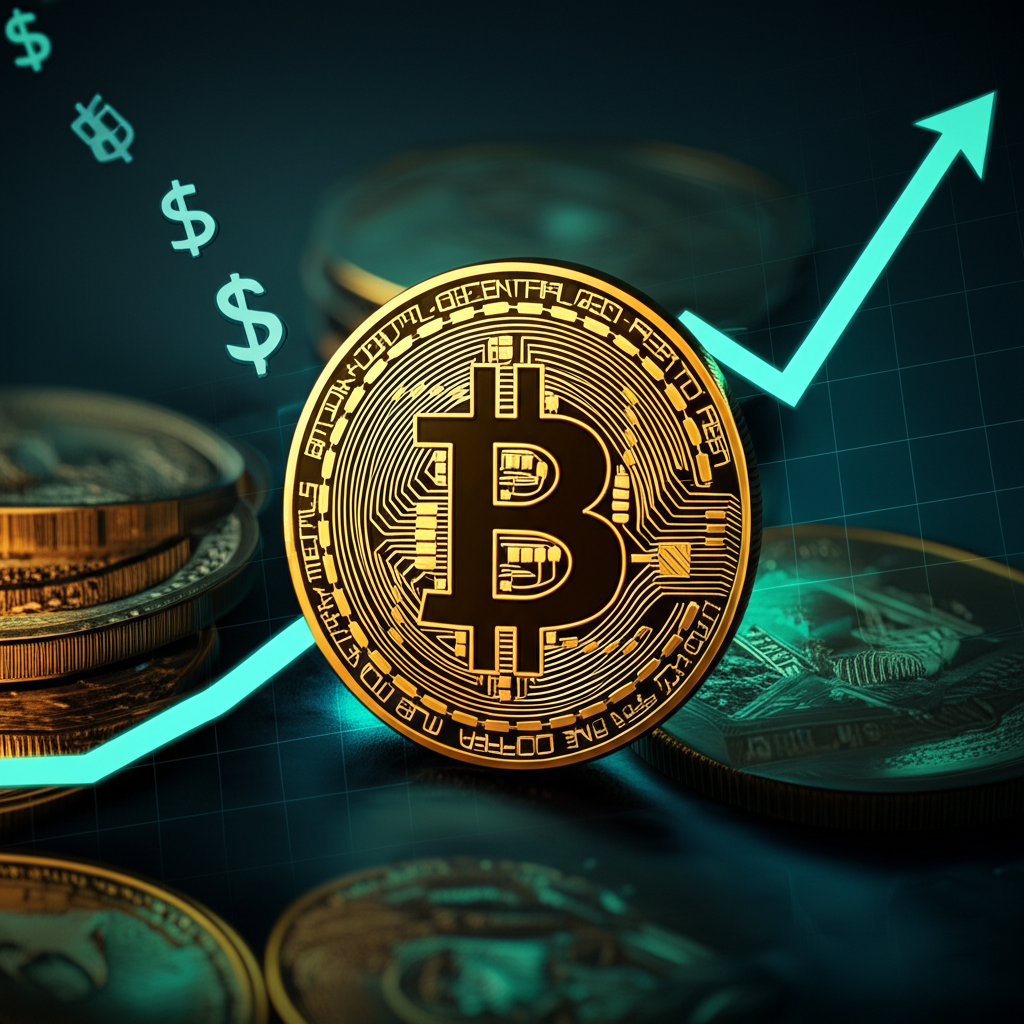Bitcoin Surges: Experts Predict New All-Time Highs Amid Inflation Fears

Bitcoin Prediction: Will it Reach New Highs. Bitcoin is once again making headlines as its price surges, fueled by growing concerns about inflation and increased institutional adoption.
Background
This surge in Bitcoin's value comes at a critical juncture
The global economy faces rising inflation, and investors are seeking alternative assets to hedge against the devaluation of traditional currencies.
The question remains: is Bitcoin a reliable hedge against inflation, or is it simply a speculative bubble ready to burst
Bitcoin, created in 2009 by an anonymous entity known as Satoshi Nakamoto, was designed as a decentralized digital currency independent of government control
Initially met with skepticism, Bitcoin gradually gained traction, attracting early adopters who saw its potential to revolutionize finance
Over the past decade, Bitcoin has experienced significant volatility, characterized by dramatic price swings.
It has weathered numerous challenges, including regulatory scrutiny, security breaches, and intense competition from other cryptocurrencies
Despite these obstacles, Bitcoin has consistently demonstrated its resilience, maintaining its position as the dominant cryptocurrency.
Current Situation Currently, Bitcoin is trading at a significantly higher price than it has in recent months, driven by several factors: Inflation Concerns: Rising inflation rates globally are prompting investors to seek alternative assets that can preserve their purchasing power
Institutional Adoption: Major corporations and investment firms are increasingly allocating capital to Bitcoin, lending legitimacy to the cryptocurrency
Regulatory Clarity: Some countries are providing clearer regulatory frameworks for cryptocurrencies, reducing uncertainty and fostering adoption
Increased Accessibility: Easier access to Bitcoin through various platforms and investment vehicles is attracting a wider range of investors.
However, some analysts remain cautious, pointing to potential risks such as: Regulatory Crackdowns: Stricter regulations could stifle Bitcoin's growth and lead to price declines
Market Volatility: Bitcoin's price remains highly volatile, making it a risky investment for those with a low-risk tolerance.
Competition from Other Cryptocurrencies: The emergence of new and innovative cryptocurrencies could challenge Bitcoin's dominance
Expert Opinions Experts hold diverse opinions on Bitcoin's future trajectory.
Some are bullish, predicting significant price appreciation, while others are more cautious, anticipating potential corrections
Bitcoin is increasingly seen as a store of value, similar to gold, and its limited supply makes it an attractive hedge against inflation," says Michael Saylor, CEO of MicroStrategy. - Michael Saylor, CEO of MicroStrategy "While Bitcoin has significant potential, it's important to remember that it's still a relatively new and volatile asset class.
Investors should exercise caution and only invest what they can afford to lose," cautions economist Nouriel Roubini.
- Nouriel Roubini, Economist Future Outlook The future of Bitcoin remains uncertain, but several factors will likely influence its price and adoption: Regulatory Developments: The regulatory landscape will play a crucial role in shaping Bitcoin's future
Clear and consistent regulations could foster adoption, while restrictive regulations could hinder its growth.
Technological Advancements: Ongoing technological developments, such as the Lightning Network, could improve Bitcoin's scalability and usability
Macroeconomic Conditions: Global economic conditions, such as inflation and interest rates, will continue to influence investor sentiment towards Bitcoin
Public Perception: Public perception of Bitcoin will play a significant role in its mainstream adoption
Increased awareness and education could help overcome skepticism and foster wider acceptance. Implications Bitcoin's price fluctuations have implications that extend beyond the cryptocurrency market.
For instance, a significant price drop could impact the broader financial markets, leading to increased volatility and uncertainty.
Conversely, continued price appreciation could further legitimize Bitcoin as an alternative asset class, attracting more institutional investment and potentially disrupting traditional financial systems
Conclusion Bitcoin's future remains a subject of intense debate. While its recent surge has fueled optimism, potential risks and challenges remain.
Investors should carefully consider their risk tolerance and conduct thorough research before investing in Bitcoin or any other cryptocurrency.
The key to navigating the volatile cryptocurrency market is to stay informed, exercise caution, and diversify investments
